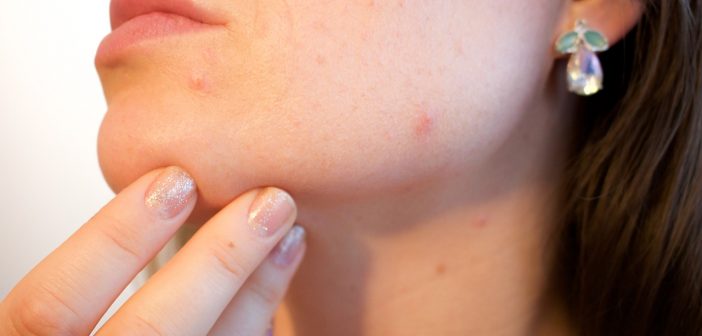Acne, zits and pimples can make the challenges of the teen years just that much harder. This is a parents’ guide to tackling the touchy subject of breakouts.

This is a guest post by Rachel Doherty from Tweens2Teen
There aren’t many teens lucky enough to get through their high school years without a battle with acne or pimples. So, as the mother of three teens, I thought it was time to tackle this topic.
But if reading about pimples and pus is likely to make you squeamish, this might be one article to avoid.
Are all pimples acne?
From what I can find on the web, yes pimples are the same as acne, but acne is the overall outbreak that continually erupts, where pimples are the individual spots. Someone who has one pimple, probably doesn’t really have acne, if that makes sense.
According to the American Academy of Dermatology, there are a few different types of pimples:
- Whiteheads and blackheads; the difference being their colour and whether the pore is still open or has closed over, in the case of whiteheads
- Papules, the fancy word for those hard blocked pores
- Pustules, which as their name suggests are those big pus-filled zits that most people would think of as acne
- Cysts, the deepest of blocked pores that don’t really have a head
What causes zits?
It seems that puberty is the perfect storm for acne because the skin produces more oil as part of the change process. The American Academy of Dermatology points out that when the skin produces too much oil, dead skin cells and bacteria can clog up the pores of the skin and voila, you have yourself some pimples.
All that sounds like keeping good hygiene would deal with the issue of acne, but young people with the best of cleaning routines can still have acne, so it’s more than an issue of showering regularly.
What options are there for dealing with acne?
I have to confess that I spent my adolescence squeezing zits, but I’ve been convinced from researching this article that that really is the worst thing you can do for them. Here’s some ideas that really can make a difference in managing pimples and acne:
- A good cleaning routine. Keeping the amount of oils, dirt and bacteria balanced helps to manage acne, so a good cleaning routine twice a day with an a cleanser for acne-prone skin is one of the best ways to start tackling pimples, according to the Better Health Channel. After talking to quite a few chemists about this, I know that the best routine is to cleanse, pat the skin dry and then put on a cream. That’s not always a routine that teens will buy into, so getting as many steps done as possible on a regular basis is better than nothing.
- Diet can have a impact on the skin. If your teen notices they breakout after eating something in particular, they’ll save themselves some hassle by avoiding that food. But like most parts of our life, the food we eat plays a big part in our overall health and wellbeing, including for our skin. Low GI, fresh foods and wholegrains are winners, while limiting processed food are suggested by the Brisbane Skin Clinic in their anti-acne diet.
- Leave them alone. Despite the inclination to get rid of the infection, picking and popping pimples can spread the bacteria or make it worse. The less teens touch their spots, the better.
- Persistent acne can benefit from prescription medicines. There are antibiotic creams and tablets, as well as retinoid creams that can be prescribed for acne, so the Better Health Channel suggests a visit to the family doctor if the over-the-counter cleansers and creams aren’t working.
- Severe acne that causes scarring needs a specialist. Getting teens help with severe acne is best done by consulting a dermatologist according to the Better Health Channel, who can not only help with the treatment of acne, but can recommend remedies to prevent longer term scarring as well.
Should we push them to do something about it if they don’t seem to care?
Some kids are mortified by pimples and others don’t seem to care at all. I wonder if this is one of those parenting tests where there’s not actually a right or wrong answer. Is pushing our kids to deal with what could be just a cosmetic issue to them, really the right thing?
At some point, all young people have to start making their own decisions. As teens near adulthood, they should decide if they’re going to do something about treating their acne, and they’re the only ones who can decide if it’s a big enough deal to do something about.
Most of us grew up in an era where someone with terrible acne was bullied or called names, but I don’t think that’s the same these days where young people are a lot more accepting of difference. We have to be careful not to put our own fears and worries onto our children, so don’t rush in to deal with acne if it’s not something that they’re all that bothered about. At the end of the day, your relationship should always trump their looks.
Pimples and acne can be a huge hassle in the teenage years, but as parents, one of the best things we can do is listen to our kids to see if it’s as big an issue for them as it is for us.
What do you think about acne, pimples and zits? Have you got a remedy that works?
Follow Rachel
To read more wonderful posts about parenting tweens and teens head over to Tweens2Teen.com and follow Rachel on all of her social channels.


1 Comment
Pingback: The Best Advice For Removing Blackheads From Your Nose - School Mum